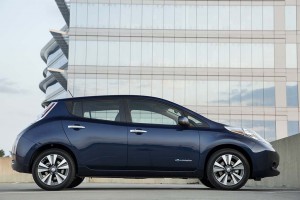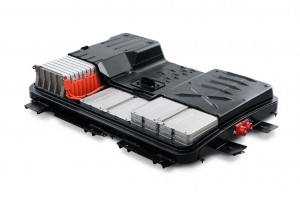Nissan Motor Co. is reportedly looking to sell its battery manufacturing operations, with Panasonic Corp. considered the most likely buyer.
Japan’s second-largest automaker has made a major bet on electric vehicles, but, with the market for battery cars running slower than expected, it is seeking to unload its 51% stake in the Automotive Energy Supply Corporation, or AESC, joint venture. The likely buyer, according to a report by the Reuter’s news service is Panasonic, which is the partner in Tesla’s Gigafactory battery plant in Reno, Nevada.
“The report on Nissan and its battery business is speculation and is not based on any announcement by us,” David Reuter, a senior company spokesman, told TheDetroitBureau.com. But he also noted that the maker will “continuously evaluate our business strategy in pursuit of optimal products and business structure.”
Under Carlos Ghosn, who serves as CEO of both Nissan and its alliance partner Renault, the two companies have invested more than $4 billion since 2009 on electric vehicles. That includes the Nissan Leaf, the world’s best-selling pure battery-electric vehicle.
(Nissan wants to redefine mobility. Click Here to see how.)
Consumers around the world have purchased more than 200,000 Leaf EVs, but that is short of Nissan’s original goals, and that has forced Nissan to rethink the strategy behind its battery joint venture. Volumes aren’t nearly high enough to achieve the cost savings originally projected.
By shedding the venture, meanwhile, Nissan could get more flexibility in terms of battery sourcing. One of the challenges of owning a battery plant is that a carmaker like Nissan is tied down and can’t take advantages when competitors come up with new technology or find ways to drive down costs.
Nonetheless, Nissan is just one of a number of automakers who have either set up their own battery operations or formed close ties with established battery companies.
Most notable among them, Tesla is partnering with Panasonic on the Gigafactory which is expected to become the world’s largest producer of lithium-ion batteries. But even that project is proving problematic. On Friday, the automaker revealed that it is spending more than expected to get the Reno operation completed even as demand for batteries is running slower than expected.
(Tesla losses mount as sales fall short, expenses rise. Click Here for more.)
Going forward, Nissan is expected to curb its use of batteries from the AESC operation and shift to packs provided by South Korean battery maker LG Chem.
That firm is the primary provider of packs used by General Motors in its Chevrolet Volt plug-in hybrid and Chevy Spark battery-electric vehicle. LG Chem will also be the supplier for the new, long-range BEV, the Chevy Bolt, that will go on sale later this year.
(High-tech safety features “APEAL” to consumers, says J.D. Power study. For more, Click Here.)


